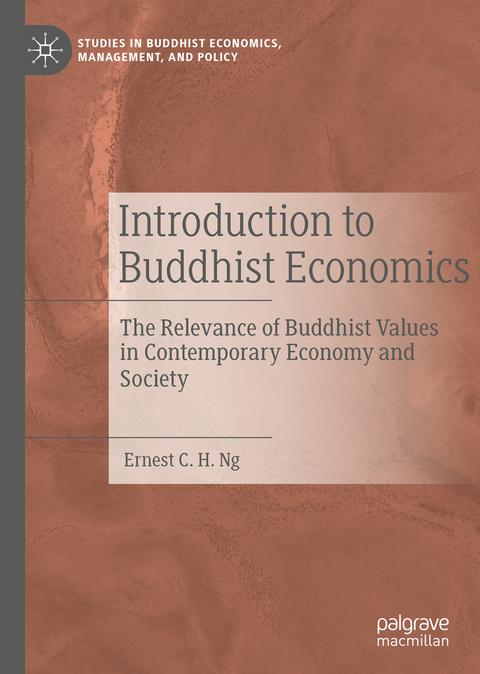
Introduction to Buddhist Economics
Springer International Publishing (Verlag)
978-3-030-35113-7 (ISBN)
Living in a market-driven economy where short-term profit and economic growth appear to be the ultimate goal, this book explores how Buddhist teachings could bridge the divide between our spiritual and material needs and reconcile the tension between doing good for social interest and doing well for financial success. This book serves as a pioneering effort to systematically introduce Buddhist Economics as an interdisciplinary subject to audience with limited background in either Buddhism or economics. It elaborates some core concepts in Buddhist teachings, their relevance to economics, and means of achieving sustainability for individuals, society and the environment with the cultivation of ethical living and well-being. Through scholarly research from relevant fields including Buddhist studies, economics, behavioral finance, cognitive science, and psychology, this book illustrates the relevance of Buddhist values in the contemporary economy and society, as well as the efficacy ofBuddhist perspectives on decision-making in daily life.
Ernest C. H. Ng is Adjunct Assistant Professor at the Centre of Buddhist Studies at the University of Hong Kong, China, where he teaches an undergraduate course on Buddhism and Economics. His research interests include Buddhist economics, the intersection of spirituality and materiality, sustainable decision-making and mindfulness. He is currently the Chief Executive Officer at Tung Lin Kok Yuen, a Buddhist NGO with over 80 years of history dedicated to Buddhist teachings, education, and community services in Hong Kong. Prior to that he was the Chief Investment Officer at Sumeru Capital and a Vice President at Morgan Stanley's Principal Strategies team with over 15 years of experience in investment banking and asset management.
1. What is Buddhist Economics?.- 2. The Four Noble Truths: A Decision-Making and Problem-Solving Framework.- 3. What is the Problem with the Market Economy?.- 4. Drivers behind the Shortcomings of the Market Economy.- 5. Buddhist Economics Theory.- 6. Buddhist Ethics and Moral Life.- 7. Buddhist Wisdom and Defining Principles.- 8. Interconnectedness, Competition, and Collaboration.- 9. Envisioning a Different "Growth Model".- 10. Alternatives to Profit-Driven Economic Growth Models.- 11. Making Sustainable Decisions in Daily Life.- 12. Implications for Business, and for Social and Environmental Change.
| Erscheinungsdatum | 02.02.2020 |
|---|---|
| Reihe/Serie | Studies in Buddhist Economics, Management, and Policy |
| Zusatzinfo | XXIII, 201 p. 13 illus. |
| Verlagsort | Cham |
| Sprache | englisch |
| Maße | 148 x 210 mm |
| Gewicht | 426 g |
| Themenwelt | Wirtschaft ► Betriebswirtschaft / Management ► Unternehmensführung / Management |
| Wirtschaft ► Volkswirtschaftslehre | |
| Schlagworte | Buddhism • Buddhist economics • Buddhist Ethics • Dana • Dāna • Development Finance • Faith, Spirituality and Business • impact finance • SDG • Social Entrepreneurship • sustainability • sustainable development |
| ISBN-10 | 3-030-35113-0 / 3030351130 |
| ISBN-13 | 978-3-030-35113-7 / 9783030351137 |
| Zustand | Neuware |
| Haben Sie eine Frage zum Produkt? |
aus dem Bereich


